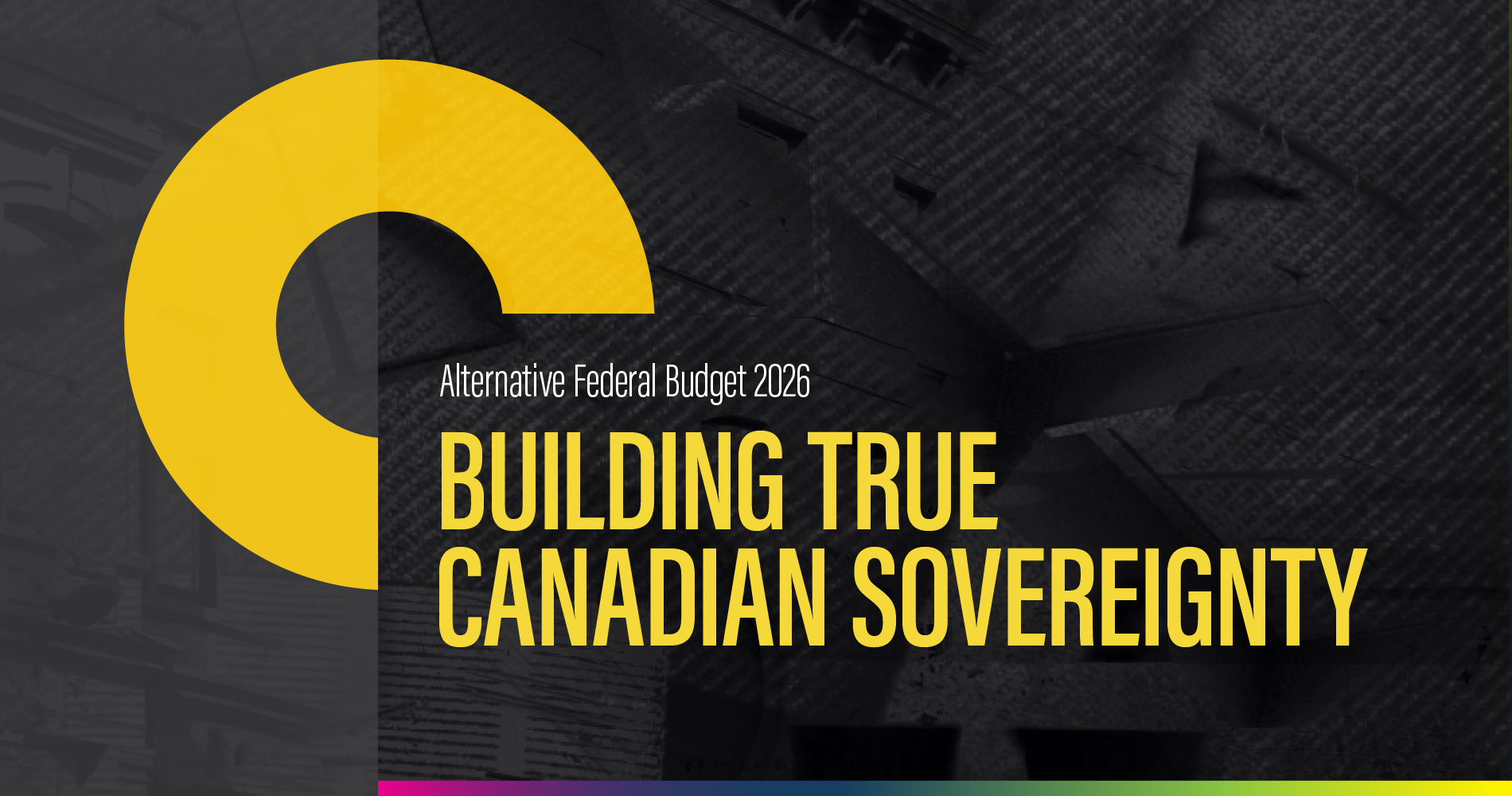Government Finance
Our publications are available to all at no cost. Please support the CCPA and help make important research and ideas available to everyone. Make a donation today.
-

Nova Scotia fiscal update raises serious concerns about fiscal priorities
HALIFAX/ KJIPUKTUK – The December Financial Update released today by the provincial government raises serious concerns about fiscal priorities and the continued lack of sufficient investment to…
-

Budget cuts by stealth: Letting programs “sunset” to cut costs won’t be painless
The feds will quietly “sunset” programs as part of their cost-cutting in the November 4, 2025 budget. Quiet cuts can still hurt.
-

Alternative federal budget 2026: Macroeconomic and fiscal projections
Whenever the federal government’s budget is discussed, the focus quickly turns to the deficit and debt. The discussion of government debt is rarely considered in…
-

Budget fédéral alternatif 2026 : Projections macroéconomiques et budgétaires
Dès qu’il est question du budget fédéral, le débat se focalise sur le déficit et la dette. Or, la question de la dette publique est…
-

Budget fédéral alternatif 2026 : Bâtir une vraie souveraineté canadienne
Les grandes lignes d’une souveraineté et d’une indépendance canadiennes véritables quand l’intérêt public est au cœur de la planification budgétaire
-

Alternative federal budget 2026: Building true Canadian sovereignty
What true Canadian sovereignty and independence might look like when the public good is at the heart of budgetary planning
-

Canada’s GST tax holiday won’t do much for affordability
The following article is based on speaking notes from a presentation which the author gave to the Senate Committee on National Finance. The video of…
-

The federal government still has time to improve the 2024 budget—will it?
The following text is adapted from a speech delivered by David Macdonald, senior economist at the Canadian Centre for Policy Alternatives, to the Senate’s committee…
-

Manitoba Budget Delivers on Healthcare but falls short on social deficit
For Immediate Release (Winnipeg, Treaty One Territory):
-

Tax cuts benefit men more than women
Previously published in the Winnipeg Free Press March 8, 2024
-

Revenue is needed to pay for Manitoba’s pressing problems
Previously published in the Winnipeg Free Press, March 6, 2024
-

CCPA-NS Provincial Budget Submission
Nova Scotia’s financial situation continues to improve, which means the province has the financial capacity to act on pressing issues.
Updates from the CCPA
Read the latest research, analysis and commentary on issues that matter to you.
CCPA Updates